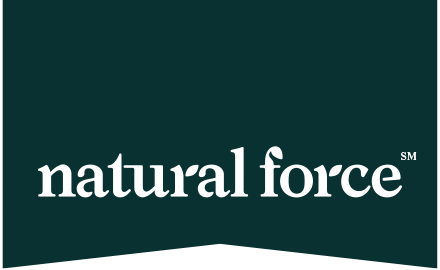Grain‑Free Vegan Protein: Top Plant Sources & How Much You Need

The best grain-free vegan plant proteins provide complete protein that is free of cereal grains like wheat, rice, or corn. Hemp, pumpkin, sunflower, spirulina, and pea protein are examples of nutritious grain-free vegan plant-based proteins that are suitable for individuals on a grain-free diet.
Why Grain‑Free Vegan Protein Matters & Where to Find It
Choosing a vegan diet without grains adds a layer of complexity—but it doesn’t mean sacrificing protein. Whether you’re avoiding grains due to gluten sensitivity, Paleo alignment, or personal preference, you can still meet your protein targets through a strategic mix of nuts, seeds, legumes (if acceptable), tofu/tempeh, and concentrated plant‑protein sources. Research on plant‑based protein emphasises that variety, digestibility, and complete amino acid profiles matter most. Healthline+2Zoe+2
By focusing on foods like hemp hearts, chia seeds, pumpkin seeds, pea‑based protein powders, tofu/tempeh, and nut butters, you’ll build a robust protein intake without grain‑based foods dominating your diet.
In this article, you will find out what makes these a great plant-based protein:
What Makes a Great Grain-Free Vegan Protein
Plant-based diets are booming in popularity, but today’s Vegan and Vegetarian consumers aren’t the same as their counterparts from earlier eras.
Due to concerns about pesticides, Celiac disease, and GMO Frankenfoods, modern consumers want organic, non-GMO, gluten-free, and grain-free options.
This might seem limiting at first, but in fact, there are numerous nutritious, 100% grain-free plant-protein options available.
Hemp Seeds
This highly digestible, complete plant protein is sourced from non-psychoactive cannabis sativa seeds and provides all 9 essential amino acids as well as essential fatty acids such as linoleic acid and alpha-linolenic acid. Additionally, hemp protein supplementation has been shown to normalize blood clotting, which may improve cardiovascular health.
Hemp seeds can be eaten raw or ground into a powder. They contain a mix of water, carbohydrates, and healthy fats, along with an impressive 31 percent protein by weight. Hemp seeds are also a good source of important vitamins and dietary minerals, like B vitamins, manganese, phosphorus, and zinc.
Pumpkin Seeds
Pumpkin seeds are high in protein and micronutrients. They contain the amino acid tryptophan, which has been shown to help reduce anxiety, and the mineral magnesium, which has numerous health benefits, including improved blood sugar control and enhanced athletic performance. By weight, pumpkin seeds are 22 percent protein.
Pumpkin seeds taste great either raw or roasted and can be tossed into salads or eaten by the handful. However you enjoy them, you will be sure to benefit from the variety of vitamins (A, C, and K) and minerals (iron and zinc) found in pumpkin seeds!
Sunflower Seeds
Native to North America, sunflower seeds are a great source of plant-based protein as well as vitamin E, which may help to reduce LDL cholesterol, support detoxification, improve skin health, and enhance athletic performance. Sunflower seeds are about 20 percent protein by weight.
In addition to being a rich source of B vitamins, vitamin E, and essential dietary minerals like phosphorus, iron, and zinc, sunflower seeds are one of the easiest plant proteins to add to your diet. Sunflower seed butter is a popular and widely available alternative to peanut butter, and shelled sunflower seeds can be found in nearly all grocery and convenience stores.
Spirulina Algae
Spirulina is a microalga that has been eaten for centuries, and once you understand its nutritional benefits, it’s easy to see why! With more than 50 percent protein by weight, more calcium than milk, and a wide array of vitamins, minerals, and unique compounds like phycocyanobilin, spirulina is a true nutrient powerhouse.
This algae-sourced superfood can also be used as a natural ergogenic aid (an athletic performance enhancer) and works by increasing muscular strength and reducing muscular damage. It is rich in the B-complex vitamins and antioxidants like vitamin C and E. It also has more beta-carotene than any other food available. As a result, this ocean-sourced superfood is a superb plant-based protein.
Pea Protein
Pea protein is a good source of essential amino acids, vitamins, minerals, and unique polyphenolic compounds that may have anti-cancer and cholesterol-lowering effects. As the name suggests, pea protein comes from peas, specifically the yellow pea Pisum sativum.
Pea Protein is often used as a dairy alternative for cheese and yogurt because of its neutral taste. Its high protein content, nearly 40% by weight, also makes it suitable for athletes and other highly active people who are looking to supplement their dietary protein intake. Unlike peas themselves, pea protein is also appropriate for low-carb diets as it contains no carbohydrates or fats.
Frequently Asked Questions (FAQ)
- What are the best grain-free vegan protein sources? The top grain-free vegan protein sources include hemp seeds, chia seeds, pumpkin seeds, sunflower seeds, almonds, cashews, tofu, tempeh, edamame, and pea protein powders. Combining these ensures a complete amino acid profile.
- Can I meet my protein needs on a grain-free vegan diet? Yes! By strategically combining nuts, seeds, legumes (if tolerated), tofu, tempeh, and plant-based protein powders, you can meet daily protein requirements while avoiding grains.
- Are nuts and seeds enough to get sufficient protein without grains? Nuts and seeds provide a good amount of protein but may need to be paired with tofu, tempeh, or pea protein powder to reach daily protein targets, especially for athletes or highly active individuals.
- Is it necessary to use protein powders on a grain-free vegan diet? Not always, but protein powders like pea or hemp protein can make it easier to reach your protein goals without relying on grains. They are particularly useful for those with higher protein needs.
(Want articles like this via email? Here's the sign up!)
